- Home
- Jack London
The Jacket (The Star-Rover) Page 15
The Jacket (The Star-Rover) Read online
Page 15
When they finally left me I lay for the rest of the day stupid and half-comatose. There is such a thing as anжsthesia of pain, engendered by pain too exquisite to be borne. And I have known that anжsthesia.
By evening I was able to crawl about my cell, but not yet could I stand up. I drank much water, and cleansed myself as well as I could; but not until next day could I bring myself to eat, and then only by deliberate force of my will.
The program me, as given me by Warden Atherton, was that I was to rest up and recuperate for a few days, and then, if in the meantime I had not confessed to the hiding-place of the dynamite, I should be given another ten days in the jacket.
“Sorry to cause you so much trouble, Warden,” I had said in reply. “It’s a pity I don’t die in the jacket and so put you out of your misery.”
At this time I doubt that I weighed an ounce over ninety pounds. Yet, two years before, when the doors of San Quentin first closed on me, I had weighed one hundred and sixty-five pounds. It seems incredible that there was another ounce I could part with and still live. Yet in the months that followed, ounce by ounce I was reduced until I know I must have weighed nearer eighty than ninety pounds. I do know, after I managed my escape from solitary and struck the guard Thurston on the nose, that before they took me to San Rafael for trial, while I was being cleaned and shaved I weighed eighty-nine pounds.
There are those who wonder how men grow hard. Warden Atherton was a hard man. He made me hard, and my very hardness reacted on him and made him harder. And yet he never succeeded in killing me. It required the state law of California , a hanging judge, and an unpardoning governor to send me to the scaffold for striking a prison guard with my fist. I shall always contend that that guard had a nose most easily bleedable. I was a bat-eyed, tottery skeleton at the time. I sometimes wonder if his nose really did bleed. Of course he swore it did, on the witness stand. But I have known prison guards take oath to worse perjuries than that.
Ed Morrell was eager to know if I had succeeded with the experiment; but when he attempted to talk with me he was shut up by Smith, the guard who happened to be on duty in solitary.
“That’s all right, Ed,” I rapped to him. “You and Jake keep quiet, and I’ll tell you about it. Smith can’t prevent you from listening, and he can’t prevent me from talking. They have done their worst, and I am still here.”
“Cut that out, Standing!” Smith bellowed at me from the corridor on which all the cells opened.
Smith was a peculiarly saturnine individual, by far the most cruel and vindictive of our guards. We used to canvass whether his wife bullied him or whether he had chronic indigestion.
I continued rapping with my knuckles, and he came to the wicket to glare in at me.
“I told you to out that out,” he snarled.
“Sorry,” I said suavely. “But I have a sort of premonition that I shall go right on rapping. And—er—excuse me for asking a personal question—what are you going to do about it?”
“I’ll—” he began explosively, proving, by his inability to conclude the remark, that he thought in henids.
“Yes?” I encouraged. “Just what, pray?”
“I’ll have the Warden here,” he said lamely.
“Do, please. A most charming gentleman, to be sure. A shining example of the refining influences that are creeping into our prisons. Bring him to me at once. I wish to report you to him.”
“Me?”
“Yes, just precisely you,” I continued. “You persist, in a rude and boorish manner, in interrupting my conversation with the other guests in this hostelry.”
And Warden Atherton came. The door was unlocked, and he blustered into my cell. But oh, I was so safe! He had done his worst. I was beyond his power.
“I’ll shut off your grub,” he threatened.
“As you please,” I answered. “I’m used to it. I haven’t eaten for ten days, and, do you know, trying to begin to eat again is a confounded nuisance.
“Oh, ho, you’re threatening me, are you? A hunger strike, eh?”
“Pardon me,” I said, my voice sulky with politeness. “The proposition was yours, not mine. Do try and be logical on occasion. I trust you will believe me when I tell you that your illogic is far more painful for me to endure than all your tortures.”
“Are you going to stop your knuckle-talking?” he demanded.
“No; forgive me for vexing you—for I feel so strong a compulsion to talk with my knuckles that—”
“For two cents I’ll put you back in the jacket,” he broke in.
“Do, please. I dote on the jacket. I am the jacket baby. I get fat in the jacket. Look at that arm.” I pulled up my sleeve and showed a biceps so attenuated that when I flexed it it had the appearance of a string. “A real blacksmith’s biceps, eh, Warden? Cast your eyes on my swelling chest. Sandow had better look out for his laurels. And my abdomen—why, man, I am growing so stout that my case will be a scandal of prison overfeeding. Watch out, Warden, or you’ll have the taxpayers after you.”
“Are you going to stop knuckle-talk?” he roared.
“No, thanking you for your kind solicitude. On mature deliberation I have decided that I shall keep on knuckle-talking.”
He stared at me speechlessly for a moment, and then, out of sheer impotency, turned to go.
“One question, please.”
“What is it?” he demanded over his shoulder.
“What are you going to do about it?”
From the choleric exhibition he gave there and then it has been an unceasing wonder with me to this day that he has not long since died of apoplexy.
Hour by hour, after the warden’s discomfited departure, I rapped on and on the tale of my adventures. Not until that night, when Pie-Face Jones came on duty and proceeded to steal his customary naps, were Morrell and Oppenheimer able to do any talking.
“Pipe dreams,” Oppenheimer rapped his verdict.
Yes, was my thought; our experiences are the stuff of our dreams.
“When I was a night messenger I hit the hop once,” Oppenheimer continued. “And I want to tell you you haven’t anything on me when it came to seeing things. I guess that is what all the novel-writers do—hit the hop so as to throw their imagination into the high gear.”
But Ed Morrell, who had travelled the same road as I, although with different results, believed my tale. He said that when his body died in the jacket, and he himself went forth from prison, he was never anybody but Ed Morrell. He never experienced previous existences. When his spirit wandered free, it wandered always in the present. As he told us, just as he was able to leave his body and gaze upon it lying in the jacket on the cell floor, so could he leave the prison, and, in the present, revisit San Francisco and see what was occurring. In this manner he had visited his mother twice, both times finding her asleep. In this spirit-roving he said he had no power over material things. He could not open or close a door, move any object, make a noise, nor manifest his presence. On the other hand, material things had no power over him. Walls and doors were not obstacles. The entity, or the real thing that was he, was thought, spirit.
“The grocery store on the corner, half a block from where mother lived, changed hands,” he told us. “I knew it by the different sign over the place. I had to wait six months after that before I could write my first letter, but when I did I asked mother about it. And she said yes, it had changed.”
“Did you read that grocery sign?” Jake Oppenheimer asked.
“Sure thing I did,” was Morrell’s response. “Or how could I have known it?”
“All right,” rapped Oppenheimer the unbelieving. “You can prove it easy. Some time, when they shift some decent guards on us that will give us a peep at a newspaper, you get yourself thrown into the jacket, climb out of your body, and sashay down to little old ’Frisco. Slide up to Third and Market just about two or three a.m. when they are running the morning papers off the press. Read the latest news. Then make a swift sneak for San Quenti
n, get here before the newspaper tug crosses the bay, and tell me what you read. Then we’ll wait and get a morning paper, when it comes in, from a guard. Then, if what you told me is in that paper, I am with you to a fare-you-well.”
It was a good test. I could not but agree with Oppenheimer that such a proof would be absolute. Morrell said he would take it up some time, but that he disliked to such an extent the process of leaving his body that he would not make the attempt until such time that his suffering in the jacket became too extreme to be borne.
“That is the way with all of them—won’t come across with the goods,” was Oppenheimer’s criticism. “My mother believed in spirits. When I was a kid she was always seeing them and talking with them and getting advice from them. But she never come across with any goods from them. The spirits couldn’t tell her where the old man could nail a job or find a gold-mine or mark an eight-spot in Chinese lottery. Not on your life. The bunk they told her was that the old man’s uncle had had a goitre, or that the old man’s grandfather had died of galloping consumption, or that we were going to move house inside four months, which last was dead easy, seeing as we moved on an average of six times a year.”
I think, had Oppenheimer had the opportunity for thorough education, he would have made a Marinetti or a Haeckel. He was an earth-man in his devotion to the irrefragable fact, and his logic was admirable though frosty. “You’ve got to show me,” was the ground rule by which he considered all things. He lacked the slightest iota of faith. This was what Morrell had pointed out. Lack of faith had prevented Oppenheimer from succeeding in achieving the little death in the jacket.
You will see, my reader, that it was not all hopelessly bad in solitary. Given three minds such as ours, there was much with which to while away the time. It might well be that we kept one another from insanity, although I must admit that Oppenheimer rotted five years in solitary entirely by himself, ere Morrell joined him, and yet had remained sane.
On the other hand, do not make the mistake of thinking that life in solitary was one wild orgy of blithe communion and exhilarating psychological research.
We had much and terrible pain. Our guards were brutes—your hang-dogs, citizen. Our surroundings were vile. Our food was filthy, monotonous, innutritious. Only men, by force of will, could live on so unbalanced a ration. I know that our prize cattle, pigs, and sheep on the University Demonstration Farm at Davis would have faded away and died had they received no more scientifically balanced a ration than what we received.
We had no books to read. Our very knuckle-talk was a violation of the rules. The world, so far as we were concerned, practically did not exist. It was more a ghost-world. Oppenheimer, for instance, had never seen an automobile or a motor-cycle. News did occasionally filter in—but such dim, long-after-the-event, unreal news. Oppenheimer told me he had not learned of the Russo-Japanese war until two years after it was over.
We were the buried alive, the living dead. Solitary was our tomb, in which, on occasion, we talked with our knuckles like spirits rapping at a sйance.
News? Such little things were news to us. A change of bakers—we could tell it by our bread. What made Pie-face Jones lay off a week? Was it vacation or sickness? Why was Wilson, on the night shift for only ten days, transferred elsewhere? Where did Smith get that black eye? We would speculate for a week over so trivial a thing as the last.
Some convict given a month in solitary was an event. And yet we could learn nothing from such transient and ofttimes stupid Dantes who would remain in our inferno too short a time to learn knuckle-talk ere they went forth again into the bright wide world of the living.
Still, again, all was not so trivial in our abode of shadows. As example, I taught Oppenheimer to play chess. Consider how tremendous such an achievement is—to teach a man, thirteen cells away, by means of knuckle-raps; to teach him to visualize a chessboard, to visualize all the pieces, pawns and positions, to know the various manners of moving; and to teach him it all so thoroughly that he and I, by pure visualization, were in the end able to play entire games of chess in our minds. In the end, did I say? Another tribute to the magnificence of Oppenheimer’s mind: in the end he became my master at the game—he who had never seen a chessman in his life.
What image of a bishop, for instance, could possibly form in his mind when I rapped our code-sign for bishop ? In vain and often I asked him this very question. In vain he tried to describe in words that mental image of something he had never seen but which nevertheless he was able to handle in such masterly fashion as to bring confusion upon me countless times in the course of play.
I can only contemplate such exhibitions of will and spirit and conclude, as I so often conclude, that precisely there resides reality. The spirit only is real. The flesh is phantasmagoria and apparitional. I ask you how—I repeat, I ask you how matter or flesh in any form can play chess on an imaginary board with imaginary pieces, across a vacuum of thirteen cell spanned only with knuckle-taps?
CHAPTER XV
I was once Adam Strang, an Englishman. The period of my living, as near as I can guess it, was somewhere between 1550 and 1650, and I lived to a ripe old age, as you shall see. It has been a great regret to me, ever since Ed Morrell taught me the way of the little death, that I had not been a more thorough student of history. I should have been able to identity and place much that is obscure to me. As it is, I am compelled to grope and guess my way to times and places of my earlier existences.
A peculiar thing about my Adam Strang existence is that I recollect so little of the first thirty years of it. Many times, in the jacket, has Adam Strang recrudesced, but always he springs into being full-statured, heavy-thewed, a full thirty years of age.
I, Adam Strang, invariably assume my consciousness on a group of low, sandy islands somewhere under the equator in what must be the western Pacific Ocean. I am always at home there, and seem to have been there some time. There are thousands of people on these islands, although I am the only white man. The natives are a magnificent breed, big-muscled, broad-shouldered, tall. A six-foot man is a commonplace. The king, Raa Kook, is at least six inches above six feet, and though he would weigh fully three hundred pounds, is so equitably proportioned that one could not call him fat. Many of his chiefs are as large, while the women are not much smaller than the men.
There are numerous islands in the group, over all of which Raa Kook is king, although the cluster of islands to the south is restive and occasionally in revolt. These natives with whom I live are Polynesian, I know, because their hair is straight and black. Their skin is a sun-warm golden-brown. Their speech, which I speak uncommonly easy, is round and rich and musical, possessing a paucity of consonants, being composed principally of vowels. They love flowers, music, dancing, and games, and are childishly simple and happy in their amusements, though cruelly savage in their angers and wars.
I, Adam Strang, know my past, but do not seem to think much about it. I live in the present. I brood neither over past nor future. I am careless, improvident, uncautious, happy out of sheer well-being and overplus of physical energy. Fish, fruits, vegetables, and seaweed—a full stomach—and I am content. I am high in place with Raa Kook, than whom none is higher, not even Abba Taak, who is highest over the priest. No man dare lift hand or weapon to me. I am taboo—sacred as the sacred canoe-house under the floor of which repose the bones of heaven alone knows how many previous kings of Raa Kook’s line.
I know all about how I happened to be wrecked and be there alone of all my ship’s company—it was a great drowning and a great wind; but I do not moon over the catastrophe. When I think back at all, rather do I think far back to my childhood at the skirts of my milk-skinned, flaxen-haired, buxom English mother. It is a tiny village of a dozen straw-thatched cottages in which I lived. I hear again blackbirds and thrushes in the hedges, and see again bluebells spilling out from the oak woods and over the velvet turf like a creaming of blue water. And most of all I remember a great, hairy-fetlocked stallion, ofte
n led dancing, sidling, and nickering down the narrow street. I was frightened of the huge beast and always fled screaming to my mother, clutching her skirts and hiding in them wherever I might find her.
But enough. The childhood of Adam Strang is not what I set out to write.
I lived for several years on the islands which are nameless to me, and upon which I am confident I was the first white man. I was married to Lei-Lei, the king’s sister, who was a fraction over six feet and only by that fraction topped me. I was a splendid figure of a man, broad-shouldered, deep-chested, well-set-up. Women of any race, as you shall see, looked on me with a favouring eye. Under my arms, sun-shielded, my skin was milk-white as my mother’s. My eyes were blue. My moustache, beard and hair were that golden-yellow such as one sometimes sees in paintings of the northern sea-kings. Ay—I must have come of that old stock, long-settled in England, and, though born in a countryside cottage, the sea still ran so salt in my blood that I early found my way to ships to become a sea-cuny. That is what I was—neither officer nor gentleman, but sea-cuny, hard-worked, hard-bitten, hard-enduring.
I was of value to Raa Kook, hence his royal protection. I could work in iron, and our wrecked ship had brought the first iron to Raa Kook’s land. On occasion, ten leagues to the north-west, we went in canoes to get iron from the wreck. The hull had slipped off the reef and lay in fifteen fathoms. And in fifteen fathoms we brought up the iron. Wonderful divers and workers under water were these natives. I learned to do my fifteen fathoms, but never could I equal them in their fishy exploits. On the land, by virtue of my English training and my strength, I could throw any of them. Also, I taught them quarter-staff, until the game became a very contagion and broken heads anything but novelties.
Brought up from the wreck was a journal, so torn and mushed and pulped by the sea-water, with ink so run about, that scarcely any of it was decipherable. However, in the hope that some antiquarian scholar may be able to place more definitely the date of the events I shall describe, I here give an extract. The peculiar spelling may give the clue. Note that while the letter s is used, it more commonly is replaced by the letter f .

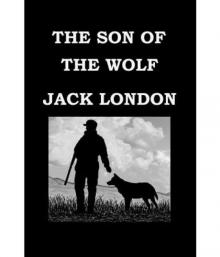 The Son of the Wolf
The Son of the Wolf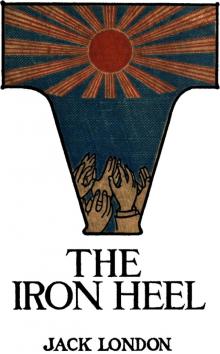 The Iron Heel
The Iron Heel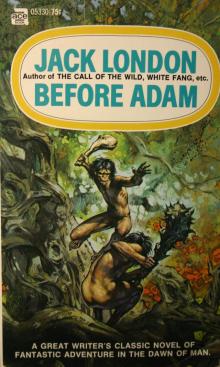 Before Adam
Before Adam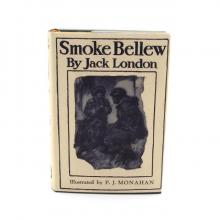 Smoke Bellew
Smoke Bellew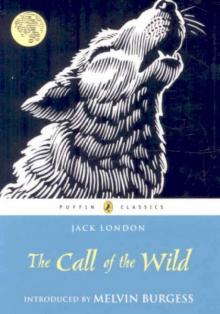 The Call of the Wild
The Call of the Wild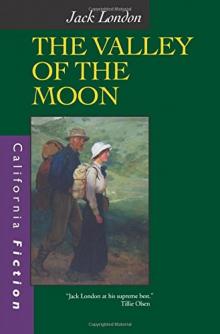 The Valley of the Moon Jack London
The Valley of the Moon Jack London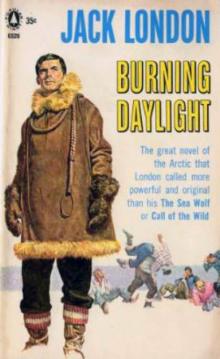 Burning Daylight
Burning Daylight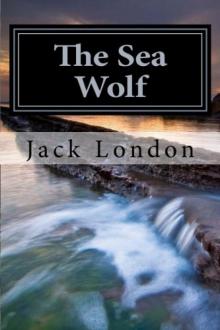 The Sea Wolf
The Sea Wolf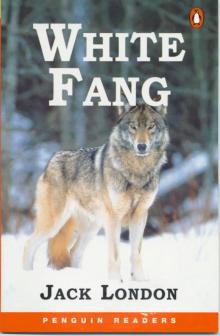 White Fang
White Fang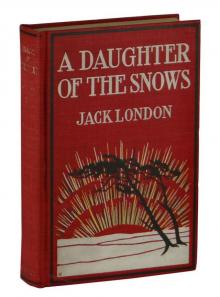 A Daughter of the Snows
A Daughter of the Snows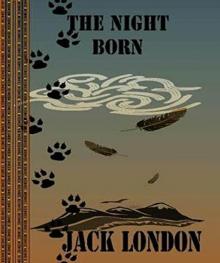 The Night-Born
The Night-Born A Son Of The Sun
A Son Of The Sun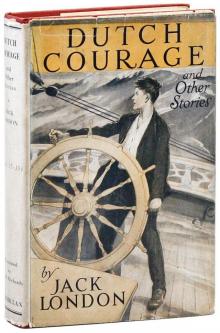 Dutch Courage and Other Stories
Dutch Courage and Other Stories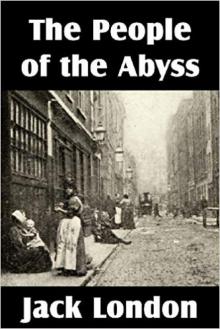 The People of the Abyss
The People of the Abyss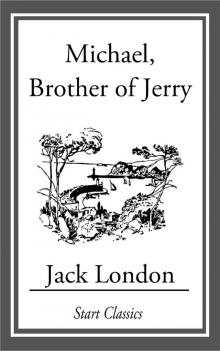 Michael, Brother of Jerry
Michael, Brother of Jerry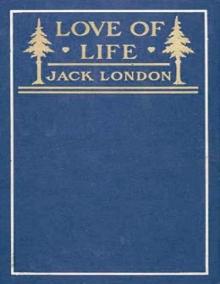 Love of Life, and Other Stories
Love of Life, and Other Stories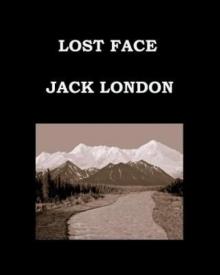 Lost Face
Lost Face The Road
The Road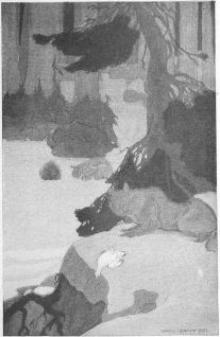 Love of Life
Love of Life The Turtles of Tasman
The Turtles of Tasman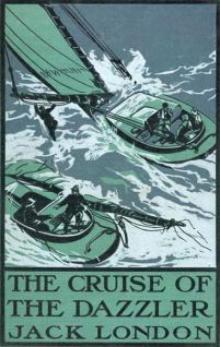 The Cruise of The Dazzler
The Cruise of The Dazzler The Heathen
The Heathen The Scab
The Scab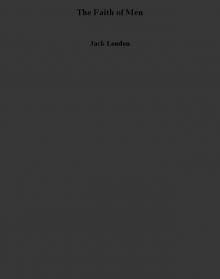 The Faith of Men
The Faith of Men Adventure
Adventure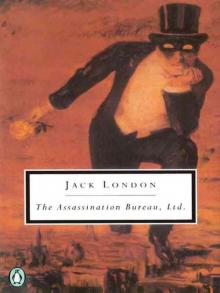 The Assassination Bureau, Ltd.
The Assassination Bureau, Ltd.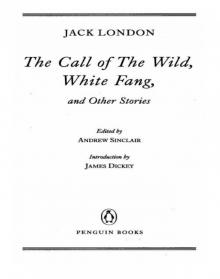 The Call of the Wild, White Fang, and Other Stories
The Call of the Wild, White Fang, and Other Stories The Call of the Wild and Selected Stories
The Call of the Wild and Selected Stories Jerry of the Islands
Jerry of the Islands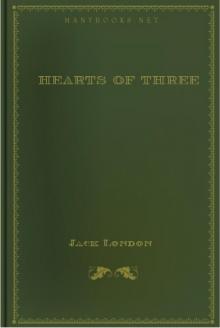 Hearts of Three
Hearts of Three The House of Pride
The House of Pride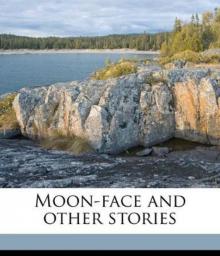 Moon-Face and Other Stories
Moon-Face and Other Stories Children of the Frost
Children of the Frost South Sea Tales
South Sea Tales The Strength of the Strong
The Strength of the Strong The Jacket (The Star-Rover)
The Jacket (The Star-Rover) The Little Lady of the Big House
The Little Lady of the Big House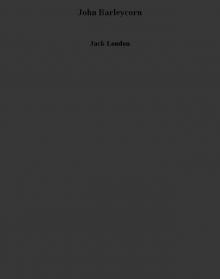 John Barleycorn
John Barleycorn ADaugter of Snows
ADaugter of Snows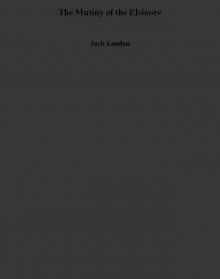 The Mutiny of the Elsinore
The Mutiny of the Elsinore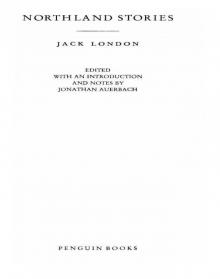 Northland Stories
Northland Stories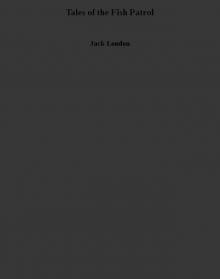 Tales of the Fish Patrol
Tales of the Fish Patrol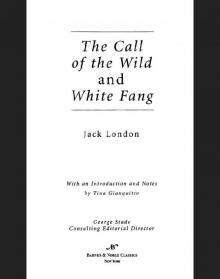 Call of the Wild and White Fang (Barnes & Noble Classics Series)
Call of the Wild and White Fang (Barnes & Noble Classics Series) The Valley of the Moon
The Valley of the Moon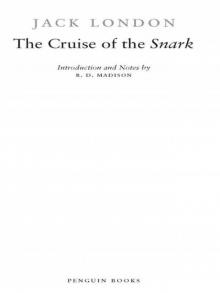 The Cruise of the Snark
The Cruise of the Snark The Game
The Game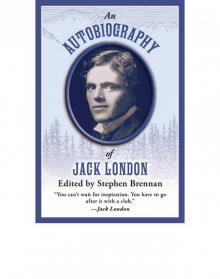 An Autobiography of Jack London
An Autobiography of Jack London